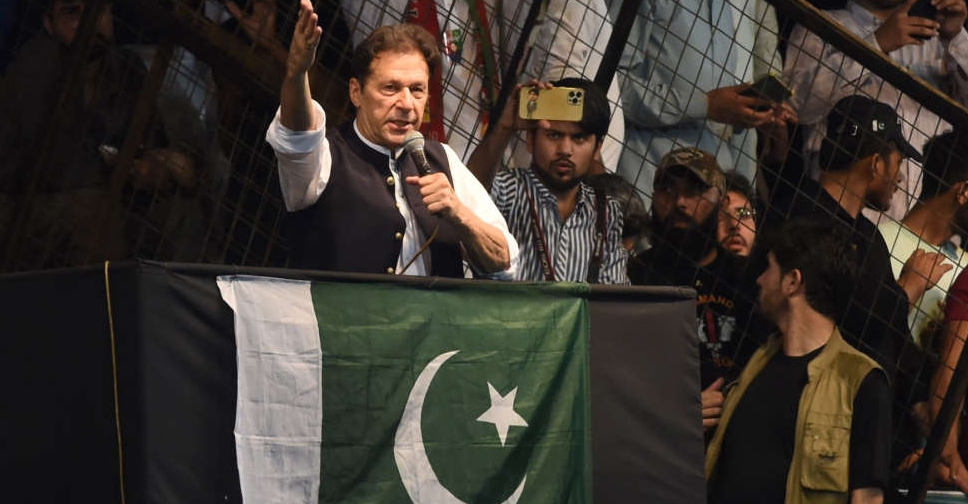
A court in Pakistan will consider taking action on Tuesday against former prime minister Imran Khan on grounds of contempt, following a weekend speech in which he threatened police officers and a judicial magistrate, officials said.
The issue could be a threat for Khan, who has been campaigning for new elections since being forced to step down this year, since a conviction would disqualify him from standing for election, legal experts said.
"It is a criminal conviction," a retired judge, Shaiq Usmani, told television channel Geo News, adding that Khan could face six months in jail if convicted. "Due to it, he cannot contest any election for five years."
The South Asian nation has seen at least one prime minister, and some law makers, unseated after such disqualifications.
The contempt issue is in addition to charges under an anti-terror law that police filed against Khan over what they said was a threat in his speech about an aide who faces sedition charges for inciting mutiny in the military.
"We will not spare you," Khan said in the speech that named the police chief and the judge involved in the case against the aide. "We will sue you."
The use of anti-terrorism laws as the grounds for cases against political leaders is not uncommon in Pakistan, where Khan's government also used them against opponents and critics.
His political party, the Pakistan Tehreek-e-Insaf (PTI), has dismissed the accusations against Khan as being politically motivated, saying they were being used to block him from leading anti-government rallies.
The prime minister from 2018 until losing a confidence vote in parliament in April, Khan came to power with what political analysts said was the support of the military, on a conservative agenda that appealed to many middle-class and religious voters.
But analysts said he fell out with the military after a dispute over the appointment of a spy chief.
Khan denied ever having military support and the military, which has ruled Pakistan for more than three decades of its 75-year history, denies involvement in civilian politics.

 UK inquiry finds 'chilling' cover-up of infected blood scandal
UK inquiry finds 'chilling' cover-up of infected blood scandal
 Iranian President Raisi killed in helicopter accident, state media says
Iranian President Raisi killed in helicopter accident, state media says
 ICC prosecutor seeks arrest warrants for Israeli, Hamas leaders
ICC prosecutor seeks arrest warrants for Israeli, Hamas leaders
 Assange given permission to appeal against US extradition
Assange given permission to appeal against US extradition
 Israel intends to broaden Rafah sweep, Defence Minister tells US
Israel intends to broaden Rafah sweep, Defence Minister tells US




